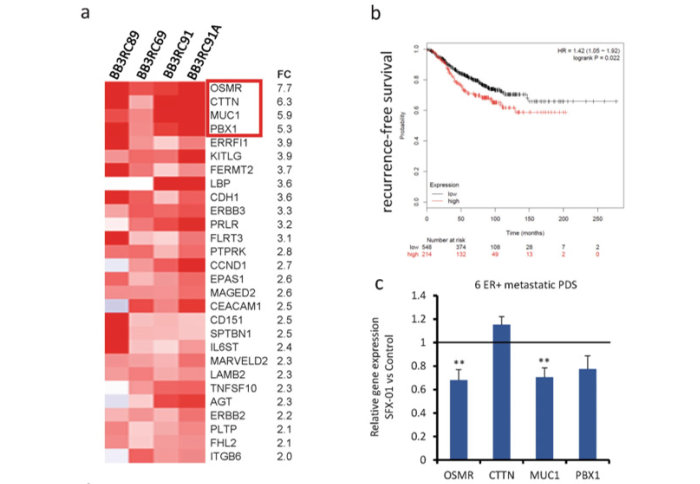Targeting STAT3 signaling in ER-positive breast cancer

Targeting STAT3 signaling using stabilised sulforaphane (SFX-01) inhibits endocrine resistant stem-like cells in ER-positive breast cancer
Congratulations to former group member Dr Scott Lovell and current member Dr Daniel Conole on their collaborative publication to Oncogene.

In collaboration with the Manchester Breast Centre/Division of Cancer at Manchester University and Evgen Pharma, this article establishes the importance of STAT3 signaling in cancer stem cell (CSC)-mediated resistance to endocrine therapy. The research also describes the potential of clinical candidate SFX-01 (a novel formulation of sulforaphane) for improving clinical outcomes in ER-positive breast cancer.
The Tate group conducted experiments that established the direct binding of a sulforaphane activity-based probe to STAT3 in clinically relevant patient-derived samples. This was an important contribution to the suite of experiments which demonstrated that sulforaphane inhibited STAT3 phosphorylation and downstream CSC activity.
We would like to thank the EPSRC for funding this research.
Article text (excluding photos or graphics) © Imperial College London.
Photos and graphics subject to third party copyright used with permission or © Imperial College London.
Reporter
Dr Ravi Singh
Department of Chemistry